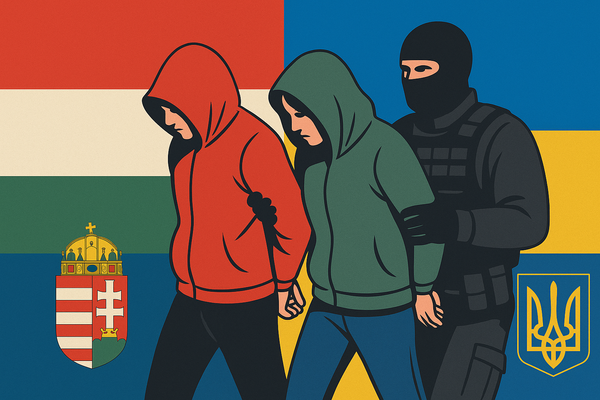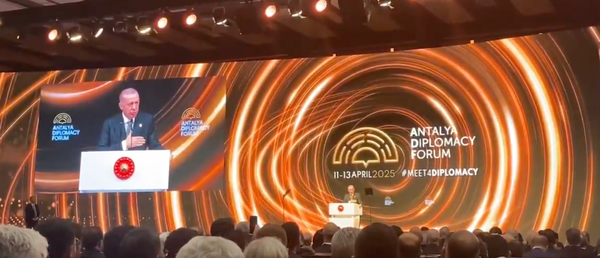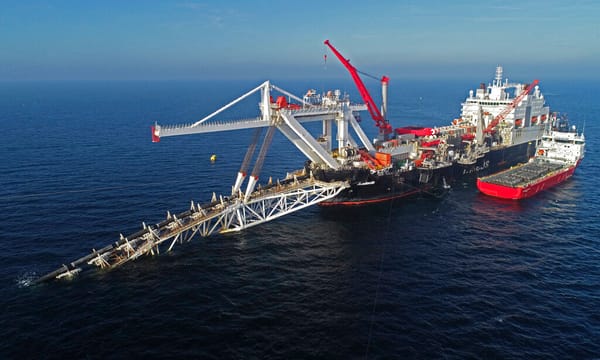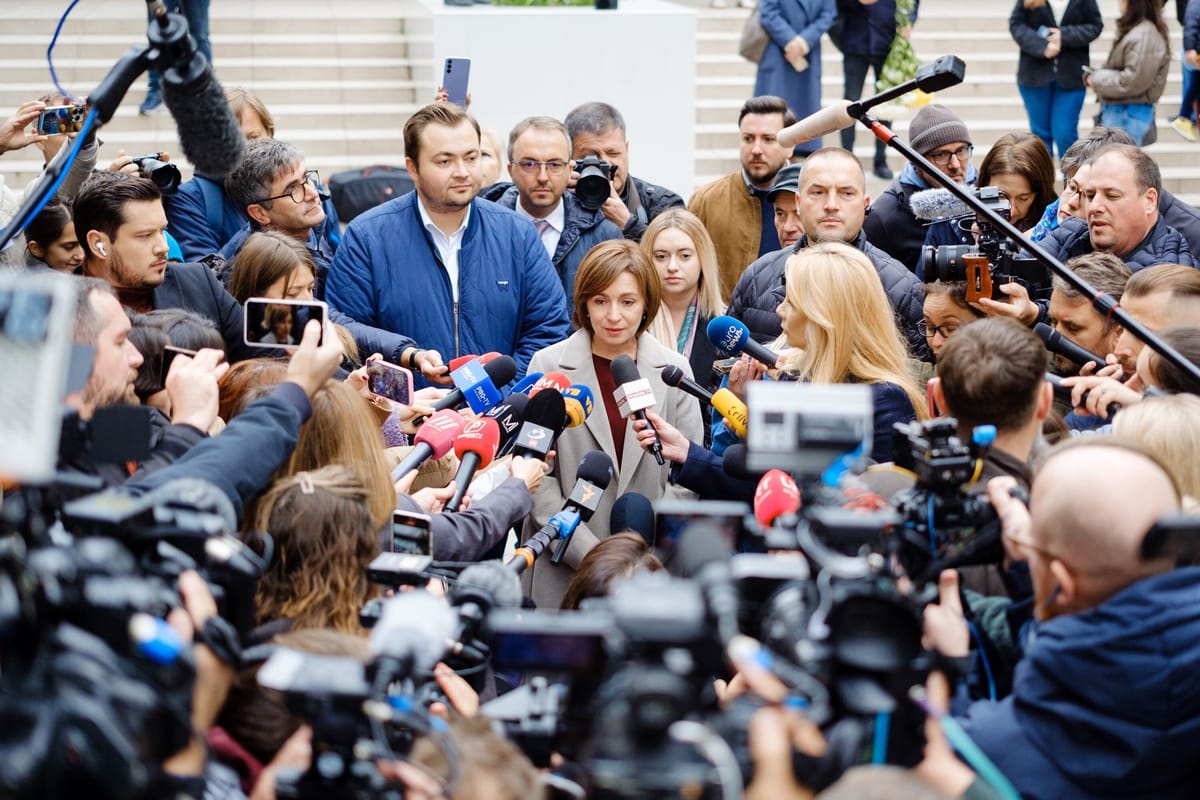
Moldovans vote 'yes' to joining EU in tight ballot
In a knife-edge referendum that laid bare Moldova’s internal divisions and heightened geopolitical tensions, the country’s voters backed constitutional changes aimed at securing EU membership on Sunday, 20 October, with 50.46% voting in favour and 49.54% against.
On the morning of the vote, Moldovan President Maia Sandu wrote on Facebook: “Moldova, go out and vote! Our vote today will determine our fate for decades to come!”
However the razor-thin margin of victory shocked many who had expected the pro-Europe side to win more easily, particularly as the vote was held in tandem with the first round of presidential elections that saw pro-EU incumbent Sandu fail to secure an outright victory.
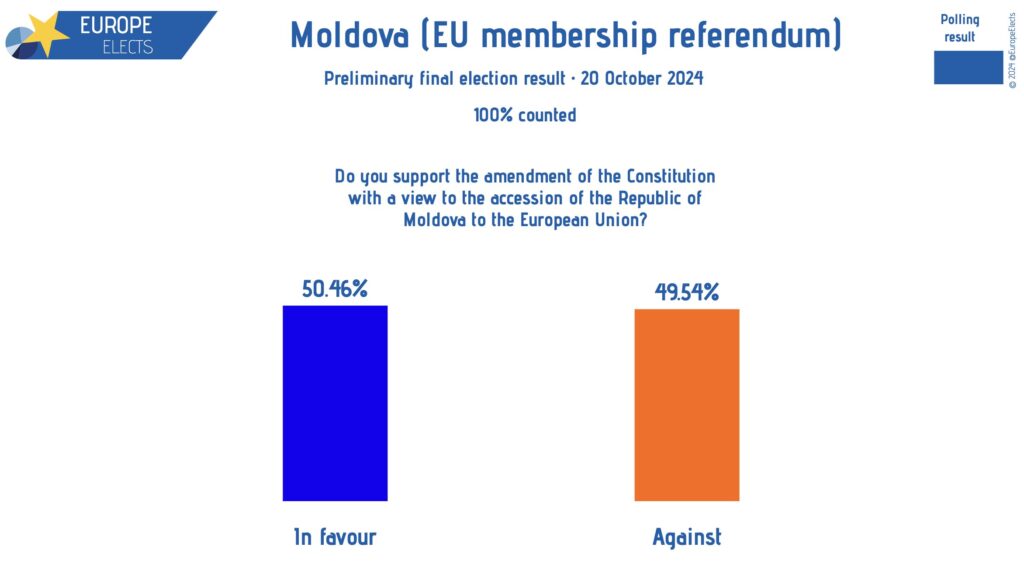
Moldova consequently finds itself at the centre of a geopolitical battle between the EU and Russia, with Sandu’s main opponent Aleksandr Stoianoglo having the backing of pro-Russian factions, although he professes support for the “European aspirations” of the Central and Eastern Europe (CEE) nation of 2.6mn people.
Stuck in the middle with EU
Although Stoianoglo garnered only 26% of a parallel presidential vote, trailing Sandu’s 42.5%, he significantly outperformed pre-election polls while the tight EU referendum result laid bare the duality of Moldovan society. Sandu’s failure to secure more than 50% of the vote means she will face Stoianoglo in a runoff election on 3 November. Populist former mayor Renato Usatii came in third with 13.8%.
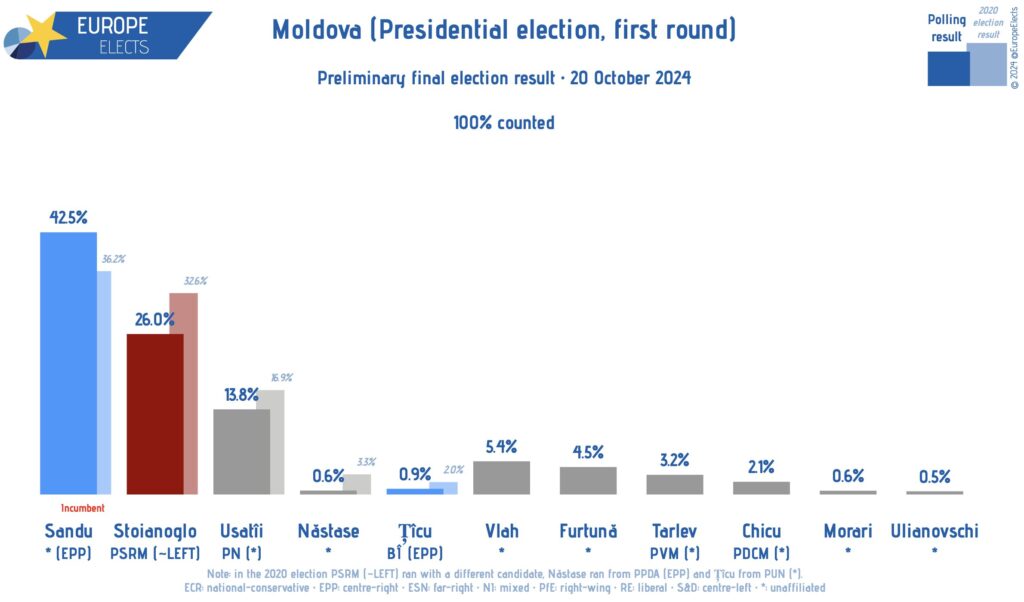
The referendum was intended to make Moldova’s EU integration “irreversible” by embedding European identity into the nation’s constitution. However, the slim victory suggests that the country’s journey toward EU membership will be less straightforward than that. Sandu has accused “criminal groups” of using illicit money and propaganda to sway the vote, stating that 300,000 votes were bought in a “fraud of unprecedented scale.”
Moldova’s narrow “Yes” to EU constitutional changes marks a pivotal moment in the country’s fraught political landscape, but it is far from a decisive victory for pro-European forces. Accusations of vote-buying and Russian interference have marred the referendum, leaving Moldova’s future in the balance. As the country heads toward a critical presidential runoff, the battle for Moldova’s soul—between European integration and Russian influence—is far from over. For now, the CEE nation remains divided, with its fate tethered to regional geopolitics.
EU membership, geopolitical tensions
Moldova has been a participant in the tug-of-war between the EU and Russia for influence in CEE, especially as the country borders war-torn Ukraine and Russia continues to maintain a military presence in the breakaway region of Transdniester.
Moldova’s pro-Western government has made significant strides in reducing the country’s reliance on Russian energy, particularly in the wake of the invasion of Ukraine in February 2022. However, this shift has come at a cost, with economic challenges placing pressure on the government.
As Moldova grapples with inflation and geopolitical tensions fueled by Russia’s war in Ukraine, the stakes are high. The referendum result is likely to embolden Moldova’s pro-Russian factions, raising questions about the country’s future foreign policy direction. Sandu’s administration, which has worked to align Moldova with the EU, now faces a tough battle to maintain its course.
“This referendum was not just about Moldova’s future in the EU, but also about its sovereignty in the face of foreign interference,” said Denis Cenusa, a political analyst. “The result shows how deeply divided Moldova remains on the issue of EU membership.” The November 3 runoff will be crucial in determining the next steps in this complex geopolitical landscape.
Vote-buying scandals, Russian interference allegations
Central to the uncertainty surrounding Moldova’s path forward is alleged foreign meddling, as Sandu and EU officials accused Russia of trying to manipulate the vote.
Sandu, who has made aligning with Europe a cornerstone of her presidency, described the referendum as being under an “unprecedented assault” from what she called Moldova’s “enemies”—a thinly veiled reference to Russia.
Evidence of vote-buying surfaced, particularly in Moldova’s breakaway region of Transnistria, which Moscow supports politically and militarily. The BBC reported direct instances of voters being offered payments to vote against EU membership, with some admitting to the vote-buying scheme at polling stations. Ilan Shor, a pro-Russian businessman now living in Russia, has been widely reported as a key player in encouraging voters to vote “no”.
Russia denied any involvement in voter manipulation, and Kremlin spokesman Dmitry Peskov challenged Sandu to provide evidence of Moscow’s role in the interference. However, EU spokesperson Peter Stano spoke of “unprecedented interference and intimidation by Russia and its proxies” during the referendum.

